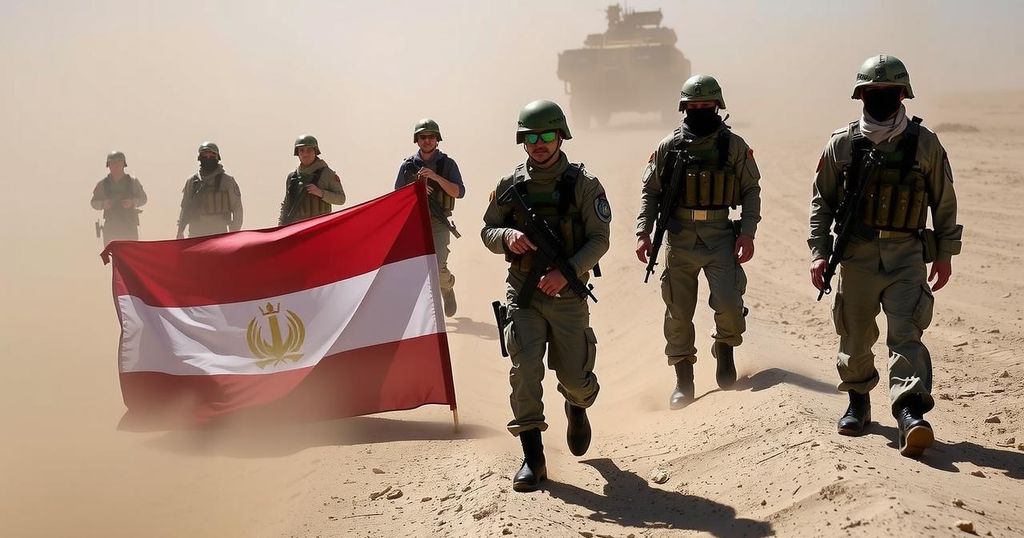Pro-Iranian Iraqi militias plan to halt operations against Israel following an agreement with Iraqi Prime Minister Mohammed Shia al-Sudani. Key leaders emphasize the need to focus on upcoming US administration policies and maintain unity among resistance factions despite the changing circumstances.
Pro-Iranian Iraqi militias are reportedly poised to cease their operations against Israel, as indicated by a recent report from the Hezbollah-aligned newspaper, Al-Akhbar. The leader of the Al-Nujaba movement, a group designated as a terrorist organization by the United States, affirmed an agreement with Iraqi Prime Minister Mohammed Shia al-Sudani. He stated that the militias would refrain from intervening in Syria and would reassess their activities in light of the forthcoming US presidential policies under Donald Trump, particularly regarding Iran’s influence in the region.
Furthermore, this leader confirmed the cessation of military actions directed towards Israel and noted that the Islamic Republic of Iran has granted the groups autonomy in making decisions related to Syria amid the ongoing threat from terrorist entities like Haya’at Tahrir al-Sham. Conversely, Kazem al-Fartousi, spokesperson for the Sayyed al-Shuhada Brigades, emphasized the imperative of unity among the factions, asserting that their positions will fluctuate according to circumstances but that the fundamental doctrine of inter-factional unity is unwavering.
This strategic shift appears to be a calculated move by the Iraqi militias, possibly reflecting broader geopolitical dynamics and the influence of Iranian directives amid changing US administrations.
The involvement of Iraqi militias in regional conflicts has been a longstanding aspect of Middle Eastern geopolitics, particularly relating to their affiliation with Iran. The Iraqi Al-Nujaba movement and other similar groups have often been positioned against Western influence and have engaged in various military operations across the region, including conflicts involving Israel and Syrian entities. The recent agreement to halt operations indicates a potential shift in strategy as these militias navigate the complex interplay of power and political agendas, especially in light of leadership changes in the United States.
In conclusion, the decision by pro-Iranian Iraqi militias to suspend their activities against Israel marks a significant tactical shift influenced by internal agreements and broader geopolitical considerations. By refraining from intervention in Syria and reassessing their actions in light of future US policies, these groups seek to maintain their influence while adhering to a doctrine of unity amidst ongoing conflict throughout the region.
Original Source: www.jpost.com







